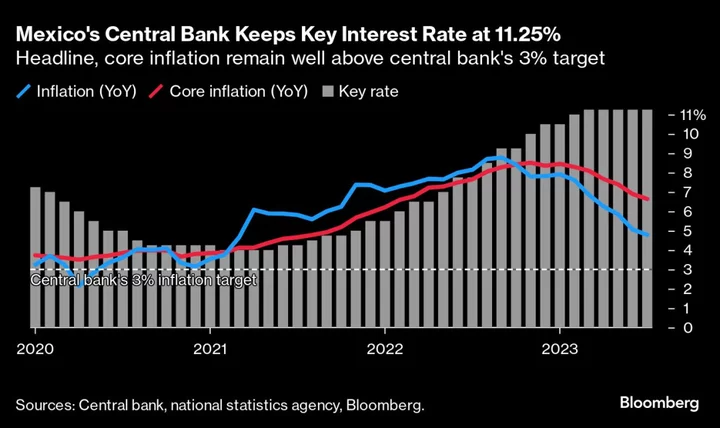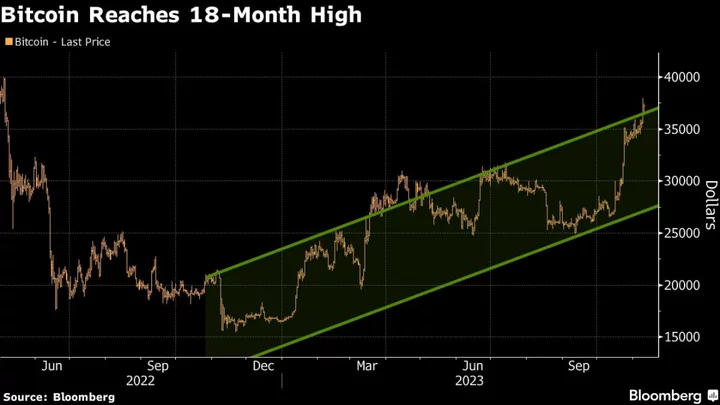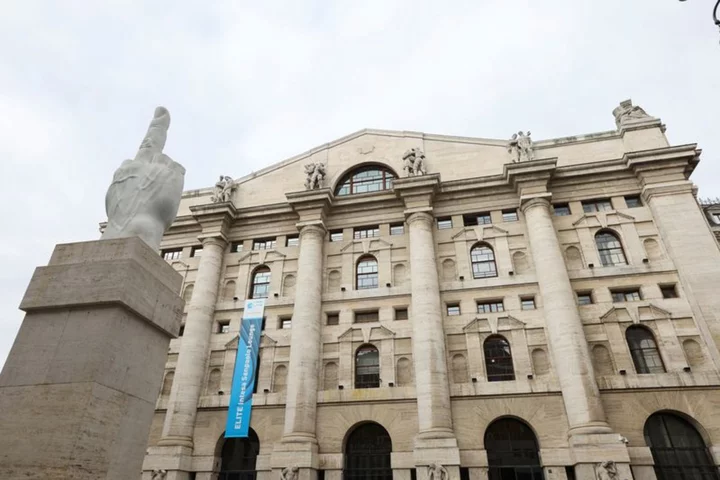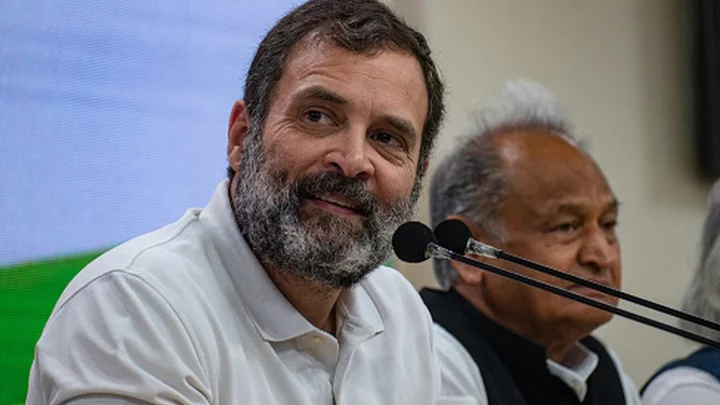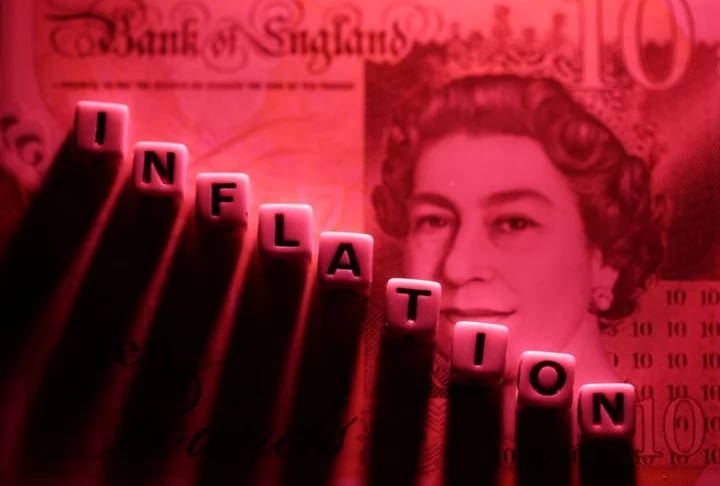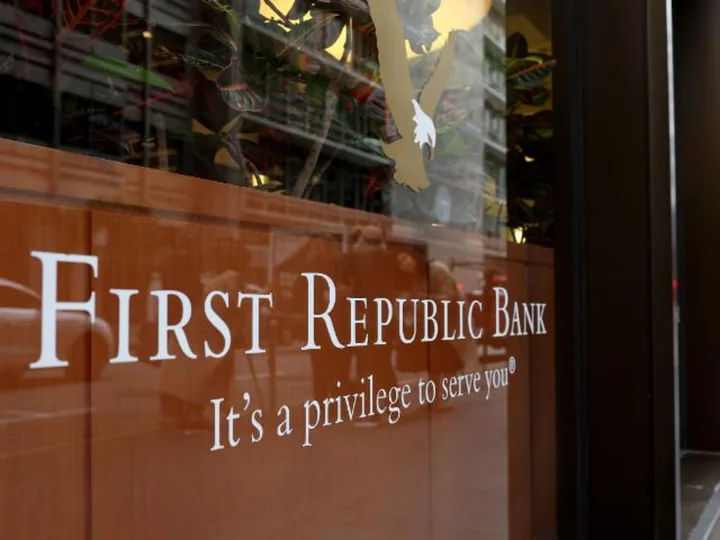Mexico kept borrowing costs unchanged for a third straight meeting, pledging to maintain its current stance long enough to ensure inflation is slowing in a sustained manner.
Banxico, as the central bank is known, voted unanimously to hold its key interest rate unchanged at 11.25% on Thursday, as forecast by all 26 economists surveyed by Bloomberg.
Since raising borrowing costs to a record high in March, the bank’s five-member board has been unanimous in keeping a restrictive policy rate even as headline inflation has slowed, citing the need to bring the far more “persistently elevated” core reading to heel. The traditionally conservative Banxico’s wariness comes as policymakers in Chile and Brazil have begun to unwind tightening campaigns, while Peru may do so as soon as next month.
“The recognition that growth has been stronger, the small increase to expected core and keeping upside risks for inflation means that Banxico is nowhere near cutting rates,” said Carlos Capistran, the head of Mexico and Canada economics at Bank of America
Read more: Bloomberg Economics Primer — Mexico’s Trade Trends
Banxico policymakers led by Governor Victoria Rodriguez have sought to provide guidance. Rodriguez in late May said the bank would wait for at least two decision periods and Deputy Governor Jonathan Heath at one point said he thought the key rate would be held for at least three decisions, leading some analysts to revise their forecasts.
Economists surveyed by Bloomberg don’t see Banxico budging until late this year with some, including those at Bank of America, predicting that the board could wait until June 2024 to begin lowering rates.
The board’s forward guidance accompanying Thursday’s decision was maintained from its June statement, indicating it will be “necessary to maintain the reference rate at its current level for an extended period.”
Read more: Mexico Central Bank Rate Statement Side-by-Side
Mexico’s economy has performed better than investors had predicted early in the year, with the Finance Ministry projecting that it will end 2023 with above 3% growth, as analysts continue to mark down the odds of a recession in the US, which is Mexico’s top trading partner.
“The central bank is being extremely cautious even in cases when inflation data has surprised to the downside,” Jessica Roldan, chief economist at Casa de Bolsa Finamex, said before the decision. “It’s reasonable for the bank to be cautious even if in comparison to other countries it might seem like they’re exaggerating.”
Potential headwinds to further disinflation remain on analysts’ radar, in particular the domestic labor market, international energy prices and the possibility of renewed drought. In line with those concerns, Bloomberg Economics forecasts that inflation in Mexico will decelerate more slowly in the second half of the year.
Traditionally Hawkish
Banxico’s battle to tame inflation has been helped by the peso, which has been the best performing emerging market currency worldwide this year after Colombia’s peso. The currency is hovering near the strongest level since 2015 as Mexico’s high interest rates attract investment and companies continue to expand their operations in Latin America.
“The steep Mexican peso appreciation in the past months has contributed to lower price pressures,” Carlos Morales, director of sovereign ratings at Fitch Ratings, wrote in a note. “High ex-ante real interest rates will allow Banxico to ease its monetary policy rate ahead of the Federal Reserve absent a reversal of inflationary pressures.”
Still, just how long the traditionally hawkish bank will hold out has been a topic of debate. Whether inflation expectations finally suggest analysts believe consumer prices are heading to target is a factor. So too is the evolution of core inflation, which in July cooled slightly more than analysts expected but remained nearly two full percentage points above the headline print.
The bank projected that inflation would slow to 3.1%, near its target, by the fourth quarter of 2024, maintaining the forecast it had given in its June decision. It stated that the inflationary outlook is “still very complex” even though some price pressures have eased.
--With assistance from Rafael Gayol and Alex Vasquez.
(Updates with Banxico statement in first, unanimous decision in second, analyst comment starting in fourth, guidance in sixth paragraph)

